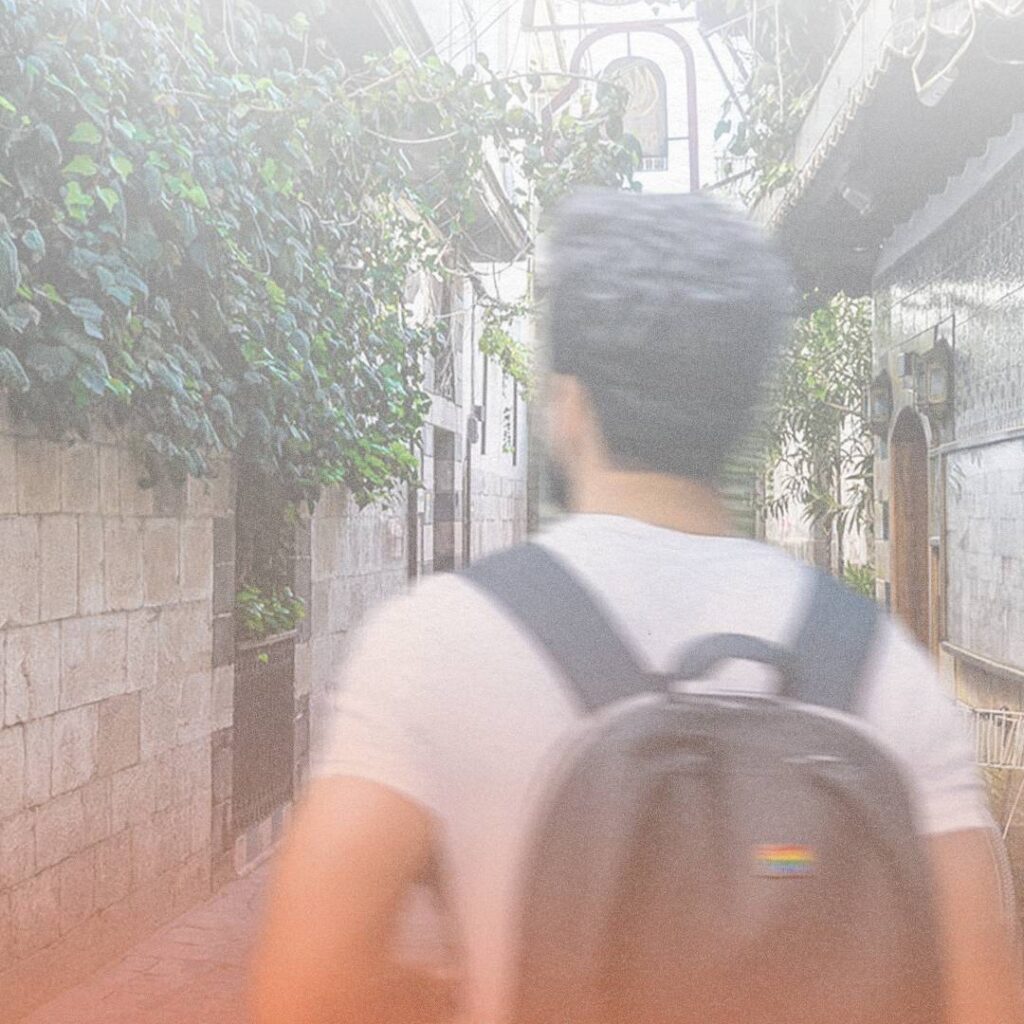A Meeting Amid the Scent of Jasmine
When I visited him at his home, I sat in his small room. The scent of jasmine drifted in through the open window, mingling with the aroma of slowly brewing coffee—as if trying to resist time, just like us. He looked at me with eyes that held remnants of unfulfilled dreams and said, “You know? This jasmine scent was a companion of my childhood, but it also used to suffocate me. It reminded me that I was in a homeland I loved, but one that didn’t love me as I am.”
He took a sip of his coffee, as if it gave him the strength to begin telling his story.
Childhood: Love in the Time of Fear
I grew up in a modest neighborhood, in a lovely house—but not lovely enough to protect a child like me from feeling like a stranger within himself. I used to watch the boys in the streets, play and laugh with them, but my heart carried a secret I didn’t dare reveal.
My father always told me, “Be strong,” but to me, strength wasn’t in shouting or defiance—it was in the ability to hide my truth. I experienced love in silence, admired in secret, dreamed in secret, and feared openly.
The Years of al-Assad: Fear Becomes a Shadow Beneath the Scent of Jasmine
Under al-Assad’s rule, fear wasn’t just a feeling, it was an unwritten law. I realized early on that I didn’t have the luxury of being myself. I wasn’t only afraid of arrest or violence; I was afraid of being exposed, of someone looking at me in a way that made me feel unwanted, as if my very existence were a sin.
At university, I watched my life as if it were a scene from a horror film—every word calculated, every step measured, every gesture had to be perfectly placed so as not to raise suspicion. I had to live half a life—to be one person in front of others, while keeping the other hidden deep within me, in a place only I could see.
On an unforgettable night, I was walking through Old Damascus, down a narrow street lit by faint light streaming from the windows. The smell of carefully cooked molokhia filled the air, and the clinking of stacked dishes echoed the warmth of homes in which I had no place. Suddenly, a sharp voice shattered the stillness of the street: “You! Come here.”
My heartbeat quickened—I felt as if everything around me had come to a halt. Even the scent of jasmine vanished for a moment, as if it, too, was hiding in fear. Men with scrutinizing eyes approached me. One of them held a phone, inspecting me as if I were a number to be recorded in files I never wanted to be part of. One of them asked, “Why are you walking alone? Where have you been?”
I replied with rehearsed phrases, my accent polished to avoid raising any suspicion. They weren’t easily convinced, but I was allowed to leave after a few minutes that felt like hours. That day, I learned how the air can become heavy—and how the scent of jasmine can mix with fear, not love.
The New Syria: Between the Kitchen, Reflection, and Freedom
When the regime fell, I watched the event from my window, my hand trembling as it held a cup of tea. I was happy—but it was a confused kind of happiness, laced with doubt. Would freedom include me too, or was it just a wider space for fear?
At first, I thought everything would change—that I would no longer need to hide. But the truth was far more complicated. There were those who saw liberation as a chance to build a more just society, and others who saw it as an opportunity to reimpose control in new ways—no less brutal than before.
Today, I try to reclaim those stolen moments—to create a life that reflects who I truly am. When I stand in the kitchen and place the coffee in the copper pot, I feel something that resembles safety. The sound of tiny bubbles as the coffee begins to boil is like my heart beating with hope—despite everything.
I love cooking—not just because it’s a true pleasure, but because it’s a space of comfort in a world that still tries to decide who deserves a dignified life and who doesn’t. When I cook, I let the spices speak for me. I watch the olive oil as it embraces the slices of eggplant in the pan, I hear the crisp sound as the bread finishes baking, and I feel, finally, that I possess something no one can take away from me.
Today, I walk the streets with more freedom—but not the freedom I once dreamed of. I sense a new air, yet it still carries traces of the past. Some friends speak of hope, of a more tolerant future, but I also hear stories—of arrests, of violence against my friends, of harsh words still thrown like knives in the streets.
Sometimes, I sit on the balcony and breathe in the jasmine that has once again become a companion—no longer something that frightens me. I close my eyes and remind myself that I am here, that I exist, that I am holding on to my right to be who I am, no matter how strong the opposing winds may be.
Sami Al-Aghbashi, Syrian Queer Activist

